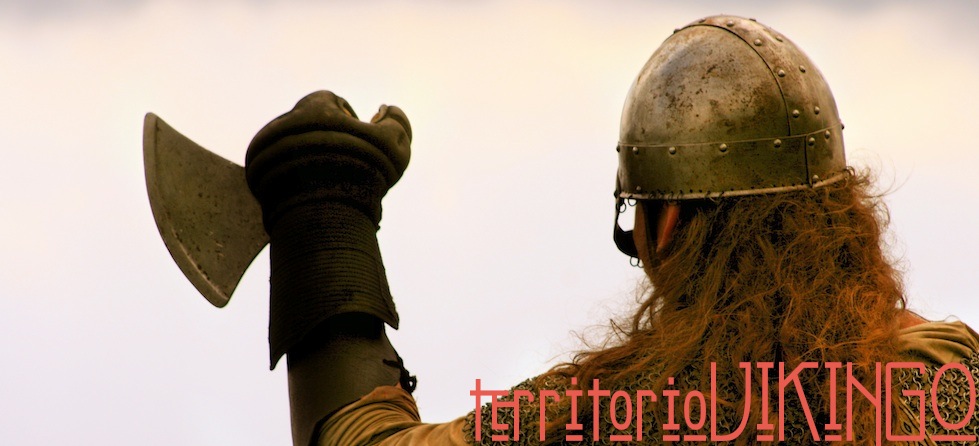| Photo: © Luke Torris Photography |
La fortaleza de Linn Duachaill fue fundada en el mismo año que Dublín (841) y utilizada por los vikingos como centro de comercio, como un lugar de encuentro para organizar ataques contra los monasterios del interior de Irlanda, o como punto donde llevar a los esclavos capturados para enviarlos a otros lugares.
extracto de un artículo original de Erin Mullaly publicado en Archaeology Magazine
Fragmento de "The history of Irland to the coming of Henry II", uno de los textos antiguos donde se menciona esta fortaleza.
840 - A fortress was made by the foreigners at Linn Duachaill, out of which the territories
and churches of Teftia were preyed. Another fortress was made
by them at Dublin, out of which they plundered Leinster and the
Ui Neill (South) as far as Slieve Bloom.
841— The killing and
burning of the Abbot of Linn Duachaill.^ A fleet of Norsemen
on the Boyne at Rosnarce, another on Lough S willy, and a
third at Magheralin. Olonmacnoise, Castledermot, Birr and
Seirkieran were plundered.
842 — Clonfert was burned.
843 — Cluana-an-dobhair, near Killeigh, in the King's County, and
Dunmask were plundered. Nuadhat and the Abbot of Tir-da-
Glas were martyred, and Forannan, the Primate of Armagh, was
captured, with his relics and Muintir, and taken to Limerick
to their ships. Here comes the first mention of Turgesius in
the Annals (843 F.M., recte 845). An expedition by Turgeis,
lord of the foreigners, upon Lough Ribh, so that they plun-
dered Connact and Meath, and burned Cluain-mic-Nois, with
its oratories, Cluain Fearta Brennain, and Tir-da-Glas, Lothra
and many others in like manner. A battle was gained over
the foreigners by King Niall, the Bon of ^dh, in Magh Itha,
and a countless number fell. Turgeis was taken prisoner by
Maelseachlainn " and his drowning afterwards in L. Uair
(L. Owel), through the miracles of God, and Kiaran, and the
saints in general."
* St. Kiaran's special anger is accounted
for by the fact that Ota, the wife of Turgesius, took her seat,
we are told, on the high altar in the church at Olonmacnoise,
and gave audience and answer from it.
